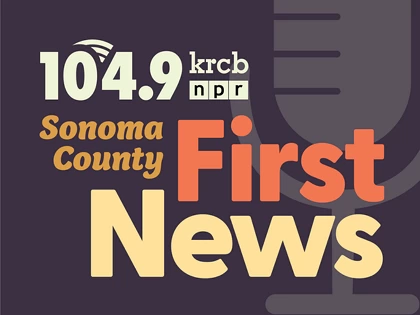 Photo courtesy of First 5 Sonoma CountyThe first five-hundred-dollar monthly checks have gone out to just over three hundred Sonoma County families. It's part of a two-year pilot to gauge the success of unrestricted cash aid to those who need it most.
Photo courtesy of First 5 Sonoma CountyThe first five-hundred-dollar monthly checks have gone out to just over three hundred Sonoma County families. It's part of a two-year pilot to gauge the success of unrestricted cash aid to those who need it most.
Amid the local bounty, there's plenty of need. More than six thousand applied.
The inspiration came from a similar experiment in Stockton and the now-expired bump in the federal Child and Dependent Care tax credit...says Angie Dillon-Shore, executive director of First 5 Sonoma County, which is managing the guaranteed basic income program locally.
"Some of the things that we saw were that millions of children, historic numbers of children, across the country, pulled out of deep poverty," says Dillon-Shore.
She credits former Santa Rosa Mayor Chris Rogers' advocacy, and an agreement by the county, Healdsburg, Petaluma, and Santa Rosa to pool some federal covid relief money for what's being called the Pathway to Equity Income.
Dillon-Shore says COVID caused more disruption than just shuttering workplaces, schools, and daycare facilities.
"We were hearing that children weren't getting their developmental screenings, they weren't getting their well checks, their regular vaccinations, just very concerned about the stressors on families and how that was impacting children at home," she says.
While five hundred dollars a month is hardly a king's ransom, it's something. The program is also about dignity.
"Part of guaranteed income is that it's unconditional," says Dillon-Shore. "There are no strings attached, we're not telling families how to spend the money," she says.
Results are being tracked and will be evaluated. Dillon-Shore says it's also removing barriers.
"Often what we do with public benefit programs that are well intentioned, we make it very challenging first to access benefits, many, many appointments, documentation," says Dillon-Shore. "I have to prove over and over that they're still eligible," she says. "And then we also create such strict and rigid eligibility parameters that it's a disincentive for families to actually get ahead because often if you make one dollar more per hour, you'll lose your subsidized housing or your subsidized pre-school, their food stamps, their MediCal," says Dillon-Shore.

 Live Radio
Live Radio




